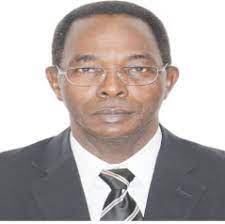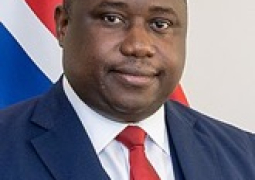
Prices of food commodities whether local produce or imported stuff are beyond the means of the average Gambian. Upholding liberal economic policies in a poor country like the Gambia can neither be realistic nor good economics.
It is acknowledged that the high cost of living is due to the high rates of foreign exchange needed to import essential commodities into the country. The global economic downturn has contributed to the harsh economic realities many nations are faced with and The Gambia is no exception. However, the state cannot seem to be helpless in this situation.
The masses of the people cannot understand that the world over countries are faced with tough economic difficulties. There are ways and means of tackling the high cost of living if only the right economic measures and business instruments and frameworks are put in place.
Since this high cost of living continues to be much talked about in town, perhaps, the government should consider it politically prudent to action a mechanism towards resolving it. It should not be seen to distort the good works the government is doing to build the country. The need for a new policy direction towards the high foreign exchange rates which leads to the high cost of living cannot be over emphasized.
The state must check its allocation mechanism of foreign exchange to business houses engaged in import trade and to give priority to those who will serve the best interest of the people in terms of prices of commodities. A market survey should reveal how realistic prices are in the determination of the cost of living. The foreign currency smuggling by certain foreigners in business through the airport and borders as alleged by concerned citizens, should be vigorously monitored and strong actions taken by the State to
redress the situation.
Why are they avoiding the use of the banking system? If drugs can be smuggled through our airport to Europe in the face of the large security outfits there then one should not be surprised if the alleged foreign currency smuggling takes place at the same airport. Let us look at the current exchange rates of foreign currencies in the parallel market.
The dollar is between D66- D67, CFA is D545-D550 to 5,000 cfa. Euro is D72- D72.75 , Pound
is D81- D82. These rates are far above the official Central Bank rates. No wonder there is a
proliferation of exchange bureaus (forex) in the country and other non registered street dealers.
Yet there are countries in the world where foreign exchange transactions are allowed to be conducted only through the banking system.
The authorities travel overseas and therefore, know very well the reasons for such monetary policies. The previous government used interventionist policies to control the foreign exchange situation to the extent that the dollar was at D43 at the end of that Presidency.
Are there more interest groups in foreign exchange business nowadays that actions cannot be taken by concerned authorities to protect the National interest and ameliorate the high cost of living for sustainable livelihoods. We cannot as a poor country hang on to monetary and economic policies and instruments which do not take into account the realities on the ground and particularly the sociological position of the Gambian people. As I see it, the fundamental problem in The Gambia is neither political nor social but how to persuade the intelligentsia and Policy advisers that they are under obligation to serve the
people and to serve them well. Education is of no value if it cannot build a sound character.
The OPINION West can only support the country through loans and grants but we must build the country based on the objective realities of our situation. The State of the Nation requires that we rethink hard on some pertinent issues affecting the lives of the people without political bias, tribalism and sabotage tendencies. Professionalism, patriotism, expertism, and technocratic competence are the pillars on which the future of the country can be advanced. The President has demonstrated a big heart to develop the country. But who will make it happen other than the Public Servants. Instead of seeing the unprecedented rate of development in infrastructure projects in the country under this government, there are those who believe that the country is tough to live in.
However, development measurements are subject to different interpretations and different perspectives. The fact is that the government has accomplished a lot in recent years, and government efforts are still ongoing for expansion of renewable energy sources in Greater Banjul. As well as improvements in the country’s telecommunication. Additionally, the new University of Science and Technology, including technical developments, the new Farato major Hospital, and other ongoing projects will give the West Coast Region a new facelift in the development process of the country.
These are huge government efforts that will impact positively on the lives of Gambians. It will expand the infrastructure and development base of the economy. Coming back to the high cost of living issue, the solution in the long term, is through the agriculture value chain. The Government must step up efforts in commercial agriculture to address the country's food basket and to excite foreign exchange earnings through exports of agriculture products. Helping small farmer holders can generate income for them but at subsistence levels. It cannot bring about sustainable development.
Let us not fool ourselves into believing that this system of agriculture activities can bring about food security to the county and ensure an export base economy. It is better for government and donor funds to go into supporting those engaged in big time production, procurement of necessary agriculture machinery and equipment, processing plants etc, for serious commercial farming to take place.
This is the key to sustainable agriculture development. It must be stated that the development of the country calls for coequal responsibility between the government and the Municipal and Area Councils and the Private Sector. Local Councils cannot be expected to perform little in uplifting their people from poverty in terms of tangible or concrete socioeconomic development projects and then ride on the achievements of central government for political gains.
The private sector as the engine of economic growth should compliment government efforts in production, employment and social services to enhance economic development. The Private Sector leadership should prevail on the business community to reduce prices of essential commodities to lessen the burden on the people. A monitoring mechanism to this effect could be put in place by the GCCI. The state of the Nation should be of concern to all citizens. When The Gambia becomes prosperous, stable and peaceful, who benefits?


